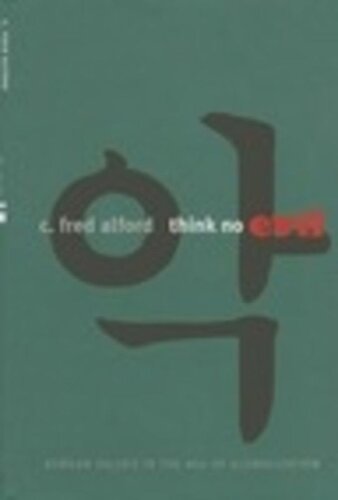

Most ebook files are in PDF format, so you can easily read them using various software such as Foxit Reader or directly on the Google Chrome browser.
Some ebook files are released by publishers in other formats such as .awz, .mobi, .epub, .fb2, etc. You may need to install specific software to read these formats on mobile/PC, such as Calibre.
Please read the tutorial at this link: https://ebookbell.com/faq
We offer FREE conversion to the popular formats you request; however, this may take some time. Therefore, right after payment, please email us, and we will try to provide the service as quickly as possible.
For some exceptional file formats or broken links (if any), please refrain from opening any disputes. Instead, email us first, and we will try to assist within a maximum of 6 hours.
EbookBell Team

5.0
28 reviewsIn this investigation of the contemporary notion of evil, C. Fred Alford asks what we can learn about this concept, and about ourselves, by examining a society where it is unknown—where language contains no word that equates to the English term "evil." Does such a society look upon human nature more benignly? Do its members view the world through rose-colored glasses? Korea offers a fascinating starting point, and Alford begins his search for answers there.In conversations with hundreds of Koreans from diverse religions and walks of life—students, politicians, teachers, Buddhist monks, Confucian scholars, Catholic priests, housewives, psychiatrists, and farmers—Alford found remarkable agreement about the nonexistence of evil. Koreans regard evil not as a moral category but as an intellectual one, the result of erroneous Western thinking. For them, evil results from the creation of dualisms, oppositions between people and ideas.Alford's interviews often led to discussions about imported ways of thinking and the impact of globalization upon society at large. In particular, he was struck by how Koreans' responses to globalization matched Westerners' views about evil. In much of the world, he argues, globalization is the ultimate dualism—attractive for the enlightenment and freedom it brings, terrifying for the great social and personal upheaval it can cause.